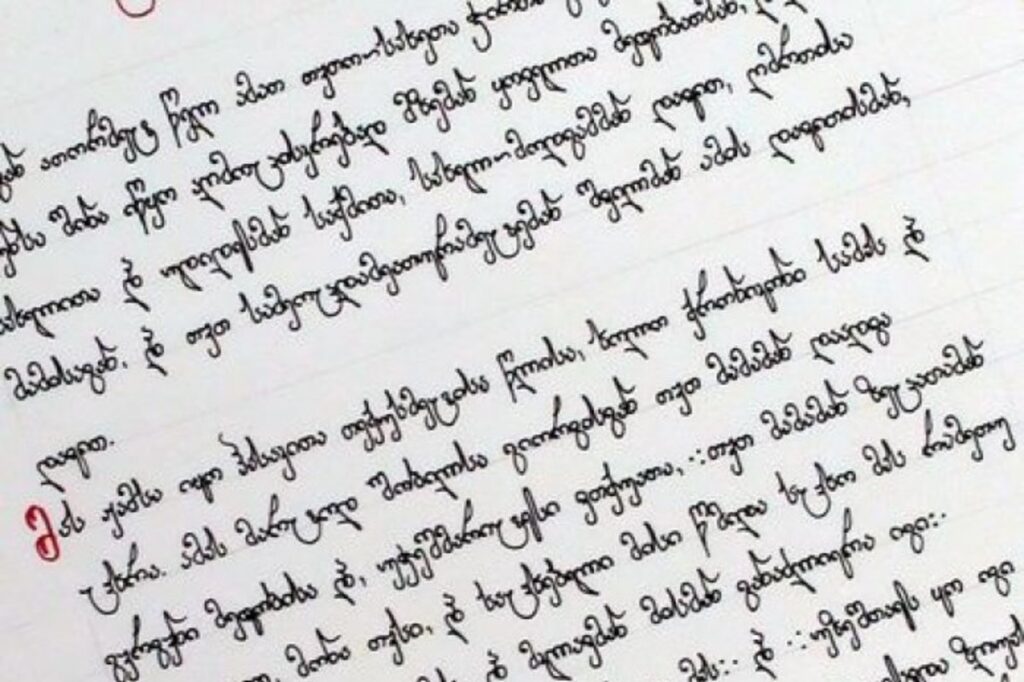Georgian translations are one of the most unique in the world. With its own alphabet and a grammatical structure completely different from Spanish, translating these languages is a big challenge.
Georgian translations require not only linguistic knowledge but also a deep cultural understanding. Each language expresses reality in a different way, and what may be a clear and direct idea in Spanish might require a more complex construction or cultural adaptation in Georgian to retain its meaning.
Georgian translations: a language with unique characteristics
Georgian is the official language of Georgia and the most widely spoken member of the Kartvelian language family. Unlike Spanish, which belongs to the Indo-European language family, Georgian has a completely different grammatical structure.
Some of its most notable features include:
- A unique alphabet: Georgian is written in mkhedruli, a writing system that has no relation to Latin or Cyrillic.
- Absence of grammatical gender: Unlike Spanish, Georgian translations does not distinguish between masculine and feminine words.
- A complex verbal system: Georgian verbs can change depending on tense, aspect, modality, and subject, making conjugation considerably more difficult than in Spanish.
These differences make Georgian translations not a simple word change but a process of restructuring to ensure clarity and fidelity to the original message.

Common challenges in Georgian translations
Every language has its particularities, and when translating from Spanish to Georgian (or vice versa), there are certain challenges that translators need to keep in mind.
1. Structural differences
The word order in Georgian translations is much more flexible than in Spanish. In this language, context and verb conjugation play a crucial role in understanding the meaning, while in Spanish, word order is more stable.
2. Words without direct equivalents
Some Spanish words don’t have a literal translation in Georgian and vice versa. For example, abstract concepts or specific terms from Hispanic culture may require explanations or approximate equivalents in Georgian.
3. Idiomatic expressions and sayings
Every language has its own idioms and expressions that cannot be translated literally. For example, in Spanish, we say “estar en las nubes” to refer to someone who is distracted, but a literal translation into Georgian wouldn’t make sense. In these cases, it’s necessary to find an equivalent expression that maintains the same meaning.
4. Cultural differences in communication
Tone and formality can vary greatly between Spanish and Georgian. While in Spanish it is common to use polite phrases and expressions, in Georgian communication can be more direct in some contexts and more ceremonious in others. Adapting these nuances is key to making the translation sound natural.
How to achieve precise and natural Georgian translations
For a text translated into Georgian (or from Georgian to Spanish) to be effective, it must retain the meaning, tone, and flow of the original language. Here are some key aspects to consider:
- Understand the context: Not all words and phrases have direct translations. It is necessary to interpret the entire message to convey it correctly.
- Know the culture: A good translation not only respects grammar but also adapts the content to the culture of the target audience.
- Avoid literal translations: Often, translating word by word can result in phrases that make no sense or are hard to understand. The key is to find natural equivalents.
- Master the grammatical rules: Georgian’s verbal system is complex, and its syntax differs from Spanish. A mistake in these aspects can completely change the meaning of a sentence.
When are Georgian translations needed?
Georgian translations can be necessary in various fields, from official documentation to marketing material. Some of the sectors where they are most frequently required include:
- Business and international trade: Companies looking to expand into Georgia need documents and contracts translated accurately.
- Tourism: With Georgia as a growing tourist destination, many businesses require material in Spanish and Georgian.
- Legal and official translations: From birth certificates to immigration documents, accuracy in translation is essential.
- Literary and academic translations: Books, research, and other materials require detailed work to retain their original essence.
In conclusion, Georgian translations are not a simple task. The difference between these two languages goes beyond vocabulary: it involves entirely different grammatical structures, unique cultural concepts, and expressions that require adaptation.
To obtain a precise and natural translation, it is essential to rely on experts who not only master both languages but also understand the cultural differences that can affect the meaning of the message.
At Max Translation, we offer specialized translations in various languages, ensuring precision and naturalness in every text. Whether it’s business and legal translations or technical and literary content, our team of professionals works diligently to ensure that every message reaches its destination with clarity and fidelity. If you need a high-quality translation, don’t hesitate to contact us.



